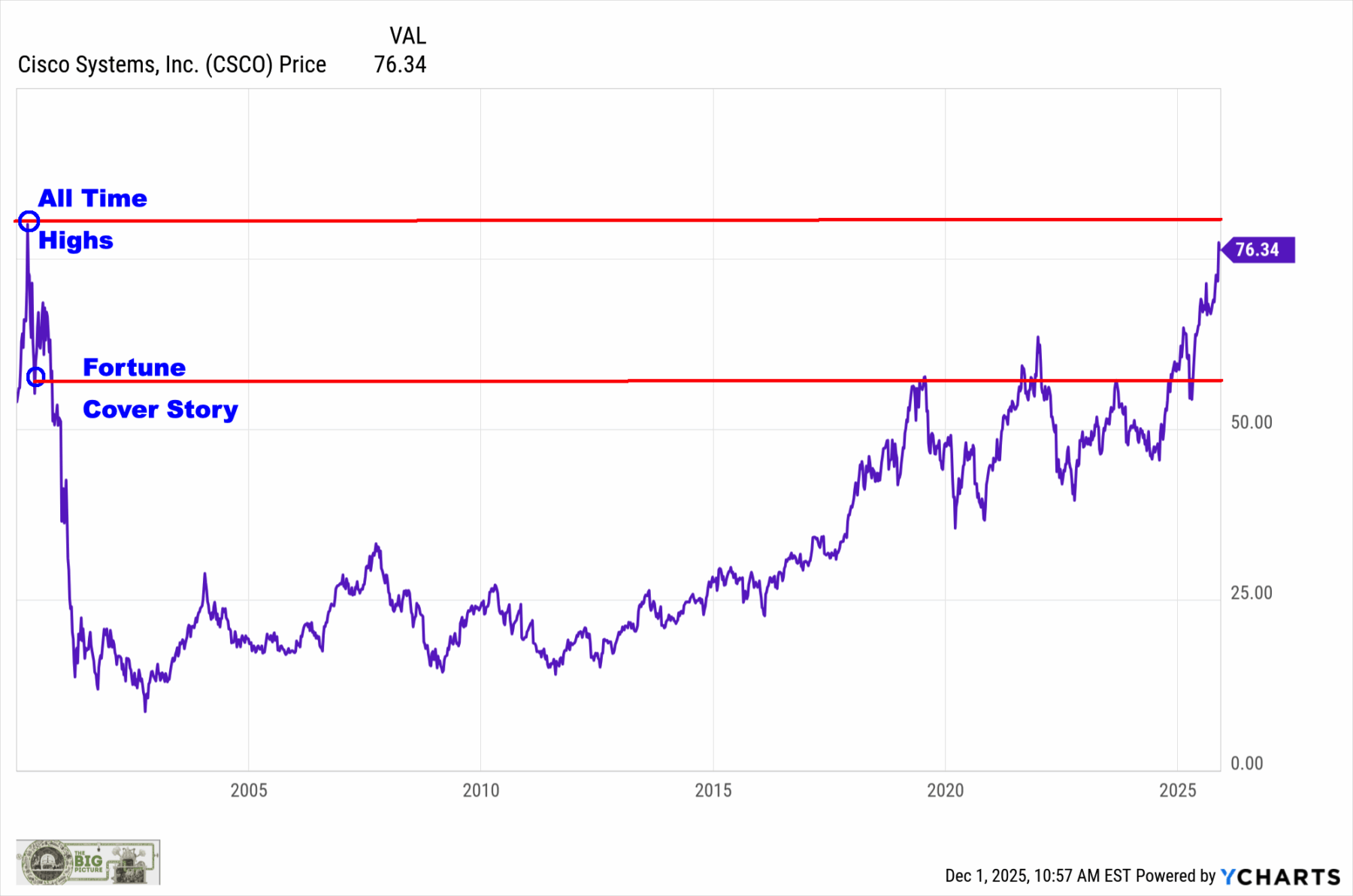Intro. [Recording date: December 21, 2023.]
Russ Roberts: Today is December 21st, 2023, and I want to encourage listeners to go to econtalk.org where you’ll find a link for our annual poll of your favorite episodes. Please go there and vote. Thanks for voting and for providing feedback about the program.
And now for today’s guest, economist Noah Smith. His blog on Substack is Noahpinion. That’s Noahpinion: N-O-A-H-P-I-N-I-O-N. This is Noah’s third appearance on the program. He was last here in October of 2018, talking about worker compensation and market power. Noah, welcome back to EconTalk.
Noah Smith: Thanks for having me back. It’s great to be here.
Russ Roberts: Our topic for today is the wealth of nations–not the book, but the concept. Although we may talk about the book a little bit. We’re going to be referring to a recent essay at Noahpinion that you wrote with the title “Nations Don’t Get Rich by Plundering Other Nations.” So, a lot of people would disagree with that, I think. So let’s start with the idea of plunder. What do you think people have in mind when they explain the wealth of nations via plunder? And, what’s wrong with it?
Noah Smith: Well, usually plunder talks about natural resources. So, you have some ships, you have some guys with guns. You send the ships and the guys with guns to somewhere else and you say, ‘Hey, we’re in charge here. Now you’re working for us in the mines.’ And then you open up some mines, and the local people mine the stuff for starvation wages, or you just enslave them, or whatever. And then, you take the metal, or whatever resources, or the rubber, whatever they’ve got, right? And then, you cart it away to the metropol of empire where you use it to build monuments to your empire’s greatness, and things like that. I think that’s the picture people have in their minds when you talk about colonial plunder.
This is–it’s a caricature, but it’s roughly accurate for the way, say, that the Spanish mined silver in South America you had the encomienda system, which was essentially slavery. You had actual, literal slavery in mining, and a lot of it was just enforced by Spanish military power. You also had–in fact, this has actually been kind of a common thing for a lot of empires for thousands of years–you saw this kind of plunder. And Spain didn’t do it too differently.
When the British and French came along, they did it a little bit differently. They usually co-opted local elites and said, ‘Hey, local guy, just sell us some stuff.’ And, they would send some soldiers in to lay down some railroad tracks or occasionally execute people you don’t like, or put down a rebellion or something like that. But then, the local elites would do a lot of the extracting, often with sort of British and French engineering help, and they’d build some–but ultimately it was not that different. Mines would get built, and miners would get paid low wages, and plantations–rubber trees cut down–grown and cut down and all this stuff.
And so, of course some Marxists say, ‘Okay, labor is also a resource, so you’re extracting labor.’ Fine, if you want.
But then, I thought–personally, I thought the idea of extraction itself just deals with the idea that you’re also extracting labor. You’re making someone do some stuff for you that they wouldn’t have done on their own if it was just a perfect free market or whatnot.
And so I think that’s kind of the idea of plunder. And, there’s absolutely no doubt that a lot of this did happen throughout history and in the period of European colonialism, and you know what? It was a common thing. And so that’s–I think–does that answer your question?
Russ Roberts: Well, and then a similar analysis is done with American economic activity in, say, Latin America or South America, where United Fruit would exploit workers in picking bananas and other natural resources. We had an episode related to this, tangentially, at least, in the Belgian Congo, which was a horrific example of European exploitation of the local population and the stealing–which is what plunder is–the theft of both natural resources and to a large extent, often the lives or wellbeing of the people who lived in those places at the time.
So the question is: How important is that? So all that happened–and it’s a horrible episode in history, varying in intensity and horrificness–all that happened. The question is–which you deal with in your essay–is: Is that the source of the wealth that Western Europe and, say, the United States have attained? Is that where it came from? Is it basically a form of exploitation?
And, you argue No. As you start with–we’ll talk in a minute about maybe the theory behind why No is the wrong answer–but let’s start with the evidence. What evidence do you provide for why plunder is not really a good explanation for how nations get wealthy?
Noah Smith: Right. Well so, the first basic thing is just to look at the timing. When you look at when nations got really rich, pretty much all of the enrichment has happened in the last 150 years, since maybe 1870 or so. If you look at 1870, the ancestors of people in the United States and Britain–people in the United States and Britain–were living very meager lives. They were living lives that by modern standards are incredibly poor. Despite all the plunder that they had done, all the military force they had applied, and all the suffering they had inflicted–mass enslavement for centuries, and all kinds of wars, and extraction, and all this stuff–they were still incredibly poor by modern standards. And so, basically, all the plunder that had happened before 1870 or so was essentially one poor person shooting another poor person for a tiny amount of money.
So, imagine that your neighbor has $40 to his name and that you have $40 to your name. Okay? So, you’re both really poor. You shoot your neighbor and take your neighbor’s $40. Are you richer now that you shot your neighbor? Well, a tiny bit. Did you harm your neighbor? Well, absolutely: You shot him. Did you plunder from your neighbor? Absolutely. You took us $40. Are you rich? No, you have $80 now. You’re still a poor person.
So, this understanding relative versus absolute wealth is absolutely key to this idea. The idea that when we look around and we see all the cars, and the medical procedures, and the skyscrapers, and the TVs, and all the cell phones, and everything else we have that makes us rich–all the amazing food and cool furniture and all the other things that make us rich–those things are new. And, people in 1870 did not have those things. They had almost none of those things.
Russ Roberts: And, I’ve quoted Walter Williams–we probably, when I interviewed him a long time ago, we probably actually talked about this. So, we’ll link to that episode.
But, from the way he would summarize it, which I find it’s similar to what you just said. But it has an aspect I want to highlight. Through most of human history, you got rich by knocking your neighbor on the head and taking your neighbor’s stuff.
Noah Smith: Relatively rich, you wouldn’t get–
Russ Roberts: That was how you got richer.
Noah Smith: Slightly richer. Yes.
Russ Roberts: Your point, which is correct, is: That doesn’t make you rich. It makes you a little bit richer.
And, the point I want to emphasize is that, that does not make the world richer. It’s a zero-sum game, at that level. Plunder is almost by definition, a zero-sum game. It means your neighbor–in this case nationally, which is what we’re mainly going to be talking about–your national neighbor has stuff; and now you have it and they don’t. So, that does not transform the world. It might help you a little bit–as you point out–not a lot, through most of history.
But, the point I want to emphasize is that it’s actually not a zero-sum game. It, certainly at the personal level, it’s a negative-sum game. Because the threat of plunder in the personal sphere causes you to spend resources you otherwise would prefer not to spend with better locks, better guns, better fences, whatever it is.
And, even worse than that: if you’re weak and you’re at risk of being plundered by your neighbor–either personally or internationally–your incentive to grow and expand and innovate and do other things that might lead to actual real wealth is not so high because there’s a risk of plunder.
So, all of that points to the fact that plunder, which we think of as a zero-sum game, is probably much more correct to think of it as a negative sum game. And, it was the way of the world for much–almost all–of human history until just recently.
And you quote–it’s a wonderful picture. You have a chart from the work of Angus Maddison. Angus Maddison and his colleagues worked diligently to do as best as possible. It’s impossible, but they did the best they could in trying to measure, going back in the case of your chart, to 1820: What is the average per capita GDP [Gross Domestic Product] for various parts of the world?
And, what struck me about it is that until about the middle of the 20th century–so forget 1870–until the middle of the 20th century, there was no part of the world that lived on more than $10,000 a year. A very, very low standard living by our modern standards.
Starting around 1930s and 1940s–ironically, in the aftermath of the Great Depression–certainly starting in 1950, there is a remarkable, unparalleled acceleration of economic wellbeing in Western Europe, in Western Europe’s similar countries, or whatever you might call them–the United States, Canada, Australia, and so on. And then, eventually even the other parts of the world also accelerate: not nearly as dramatically, not to as nearly as high a level. But there’s basically a fivefold–four- or five-fold–improvement of standard of living in Western Europe and the United States, similar countries, since 1950. Certainly since 1900, there’s been a steady improvement as well.
So, if you want to understand how economic activity, material wellbeing, can be transformed, you have to explain that. You have to explain two things. One, why it’s relatively flat for most of human history, and then why it suddenly accelerates. And, it can’t really be plunder, because there are no Martians to plunder. For the whole world, which, the whole world has gotten richer over the last 70 years there’s no one to take it from. So, something else really underlying and important has to be going on.
Noah Smith: Right. Yes. We know–you know, basically, we know how countries get rich because we’ve seen them do it again and again. Basically, we know what industrialization looks like. Right? And we know what the requirements for that are. We know that modern scientific discoveries are absolutely key to industrialization as well as a large accumulated amount of tacit knowledge about how to build industrial things. We can see where production comes from, where you can look at a factory, you can look at supply chains and where that stuff comes from. And, you can see that we had all those natural resources before. Maybe we couldn’t extract them, but they were in the ground, they were there. And, we can see exactly the machines and the inventions that allowed us to extract those natural resources–more of them than we could before–but most importantly, to process them into new forms of stuff. Now we can make a refrigerator, before we could not. Now we can make a microphone, before we could not. And we can see very concretely where all this wealth comes from.
What’s more, we can look at the historical trajectories of countries that try to get rich mainly through plunder, and we can compare them to the historical trajectories of countries that try to get rich, mainly through making industrial stuff.
So for example, when we look at Spain and Portugal, those countries now are, you know, somewhat rich as countries go. But they weren’t always. That’s relatively recent, and is based on their integration with the European economy. In their colonial days, they did not get especially wealthy from plunder, even in the relative sense that their people remained desperately poor; and they dug up all this gold and silve, and other resources from Latin America and shipped them back to Europe, but ultimately frittered it away because they didn’t really invest it for industrialization. They spent it on wars or, like, you know, gilding the local church or whatever they had. Right? They didn’t really industrialize much. And that was why Spain and Portugal stayed poor at the time.
Britain is sort of the intermediate case.
But, before we talk about Britain, I want to talk about Germany. Which, Germany had a couple of overseas colonies for a very short amount of time. Very few, and for a short amount of time, and they weren’t ultimately that important. It was more of a vanity project for imperial Germany. Germany became rich by making stuff in Germany, and they became as rich as Britain. Eventually–now they’re richer. But they had very little legacy of colonial exploitation.
Sweden, Switzerland, Denmark–these countries did not have a colonial empire.
And now you look in the modern day: you look at Japan, who had an empire. But South Korea did not, right? Singapore, certainly. Taiwan was just this lonely little island. And, a number of countries like this have basically gotten rich without ever having a colonial empire.
And at this point, so we know that countries got rich without having their own colonial empires. We know that countries that had their own colonial empires often did not get rich. So, it was neither necessary nor sufficient to have a colonial empire nor industrialize. But, we see that Britain and France did, and Britain and France did have extensive colonial empires. And, the question is: did that make them industrialize? Did that make them get rich? Was it the fact that they had colonial empires? Right?
And, the answer is: we don’t actually know. Because, so there are hypotheses that say–there is a hypothesis that says, ‘The reason Britain industrialized was because it had cheap capital and expensive labor.’ That, you need to substitute capital for labor. In other words, if workers’ wages are really, really high, but yet the price of physical stuff–machinery and commodities–is very low, you need to use the machines instead of the humans. And then, once they started using the machines, then they’re, like, ‘Oh, wow, these machines are really great.’ And they started tinkering and improving and investing. So, you then got this–industrial corporations got this virtuous cycle of investing in better machinery and technology.
And so, that is an argument for why the industrial revolution was sparked. And, a key part of that argument is the idea that cheap resources from extraction from colonies made capital cheap and prompted business people in Britain to use machines instead of workers–and to get used to using machines instead of workers–to expand. Of course, the workers’ wages were eventually raised, too.
So, that is an argument. And, if you look at the work of, say, Robert Allen, it doesn’t explicitly mention the flood of resources. Well, I guess he does briefly, but that’s implicit in his ideas. If you look at Pomeranz, The Great Divergence, he talks about this as well. He doesn’t put it in quite the same terms as Allen.
So, it is possible, it is possible that all you needed to start industrialization–that the reason that Sung Dynasty China or the Roman Empire or the early modern Netherlands never industrialized, or India–the reason these people never industrialized is because they had cheap labor; and, business people would always do the short-term thing of using more and more cheap labor instead of doing the difficult long-term thing of investing in machines.
And that all it took was for one country to have this massive influx of cheap stuff from the colonies in order for the price of switching to machinery to go way down. And, that was the magic spark that started the Industrial Revolution.
Now, this is a theory. I will say that I’ve looked at some of the evidence for the theory, and it’s highly inconclusive. But it might be true. It might be that, had Britain not had a colonial empire, it would not have industrialized. And, if Britain hadn’t industrialized, maybe no one would have industrialized. And then, maybe we wouldn’t have an industrial society today, and we would still be all desperately poor in the world.
And so, according to this theory, the British Empire’s resource exploitation of the world is what saved the human race from desperate poverty. And, that all of our vast wealth now can be owed to the perhaps butterfly effect. It’s a chain–this lengthy chain of causation from Britain goes and conquers some people and extract the resources all the way to: ‘Now we’re rich. Yay.’ And, the world doesn’t have to starve and have bedbugs anymore.
And so, there is that argument; and I’ve looked, and I’m not sure, I think we don’t really know. But that’s what the argument is saying.
Russ Roberts: I don’t want to find that persuasive for a lot of reasons, but I want to dig deeper into the economic ideas behind it. I just would mention that, of course, many places that have cheap labor today have industrialized, have added a lot of capital, have added machinery, have raised the standard of living of their workers dramatically through the use of capital. So, this has a certain psychological aspect to it, at least the way you’ve portrayed it, I find a little bit strange, which is like, ‘Oh, we didn’t like that. We couldn’t look forward far enough.’
But, I think the more interesting question is just the theoretical one, which is the role of resources and their price in both our wellbeing and the opportunities to grow.
Let’s talk about the United States for a minute. A lot of people say, ‘Well, of course the United States is rich.’ And, why? ‘Well, they have these oceans, the Atlantic and the Pacific, protecting them from attack.’ Of course, not from the north and south. But fine: in general, the United States has been blessed with lots of security at relatively low cost. ‘And it has so many natural resources.’ Yes, it does. It’s a big place; it has a lot of different things. They’re not easy to extract, as you alluded to at one point. Oil, for example: was it thought of as a resource? It became one when people were clever enough to figure out how to refine it and use it to create energy. But, the idea that your colony is at an economic advantage because you can steal their stuff–and let’s call it that, not–let’s talk about pure plunder. Not buying things cheaply, not paying workers very little: Stealing. Just, taking. You send your army, they grab the stuff. Well, that’s an advantage.
The army, of course is not free and it’s not as cheap as it looks. But, yes, it’s nice to have stuff that you don’t have to pay for.
That does not make you wealthy. It is a–it goes back to your example of you bang your neighbor on the head and take $40 bucks from him. You now have $80 bucks–this year. When that money is gone, you have to find another neighbor. If you want to get wealthier and stay wealthy–and by wealthy I mean have a higher standard of living, materially–if you want to do that, you have to find more and more neighbors to bang over the head. And, that’s not a very realistic description of how the world works through most of its history.
And so, part of what I’m trying to allude to here is that some of the confusion here is about what we might call, what is called in economics, stocks versus flows–things at a point in time versus things that persist over time: growth, material wellbeing, persistent material wellbeing, persistent material wellbeing that’s widespread across vast swaths of the population. That requires growth, not just more stuff today. It means more stuff today, tomorrow, the day after.
That requires a change in the underlying process of how stuff is created. And you focused on industrialization. But, more generally, it means: you have to find ways to get more from less. You have to find ways that–what we would call productivity, innovation.
And, lastly, I just want to emphasize the point you made about Portugal and Spain, very much in line with The Wealth of Nations, by Adam Smith. Adam Smith made the point that gold and silver–they are things, and they are good for gilding churches and filling cavities for some of human history. So, they’re not useless. But they are not the source of true wealth. And Smith was a radical voice in 1776 when he said: You don’t get wealthy by taking a bunch of raw metals–that you now have more of those things than you have some dollar, or pound, or peso number associated with them–that does not transform the standard of living of your people. It means you have more stuff in your warehouse that’s not actually making life richer in any material sense.
And so, I think that insight of economics–that growth requires a transformation in how stuff is produced–as you point out–but it’s not just industrial. It’s all kinds of aspects of modern life. That’s the source of material wellbeing, not just getting some things cheaply. Getting things cheaply helps. That’s pleasant. It improves you; as you say, through most human history, not so much. But, to have a transformation that is ongoing requires a whole process of how things get improved over time.
Noah Smith: Exactly. Right. That’s right.
And so, the unsophisticated sort of argument that you see–pushed by pseudonymous doofuses on social media who may or may not be, you know, teenagers living in, like, Pakistan or something–the unsophisticated argument is that basically America’s wealth and the wealth of, like, Europe and Japan, whatever, is right now based on an ongoing transfer of resources from poor nations: That is obviously silly. There are two more-sophisticated versions of the argument that people who just have thought about it for more than five seconds and come up with.
Russ Roberts: I do just want to point out that the phrase, “pseudonymous doofuses” I think has never been uttered on EconTalk before. So, that’s very nice. Continue, carry on now. What are the slightly more sophisticated versions?
Noah Smith: Right. The slightly–the real name doofuses.
Russ Roberts: Shame on you.
Noah Smith: Shame on me, or the doofuses? All of us.
Russ Roberts: We’ll see.
Noah Smith: All of us. Because we’re all just addicted to social media, which is to all of our shame.
But, anyway, so the–one more sophisticated argument is the one I just said: the idea that all this stuff jump-started economic development. There’s also a popular argument that even made it into the New York Times in the 1619 Project: that slavery was responsible for the Industrial Revolution. That has been pretty much debunked by now.
Russ Roberts: But it’s a widely-held belief. And I think we should spend a little bit of time on it. I was going to ask you about it. I think–
Russ Roberts: It is a widely-held belief that the opportunity to enslave people is the source not of the wellbeing of southern plantation holders in 1833, but of America’s wellbeing today. That the legacy of slavery is–and of course this leads to arguments for the justice of reparations and other issues–but let’s take that on its face. What’s wrong with that argument?
Noah Smith: Well, so the first thing is that the research underlying this idea is of poor quality and has been essentially debunked. The historical scholarship, basically–so Ed Baptist is an historian, and he–Ed Baptist–claimed after looking through some archival sources, that at some point in the history of the American South, American slave owners discovered new methods of horrific torture–which he never specified but posited must exist–discovered new methods of horrific torture by which they could force slaves to work far longer and faster. Basically, torturing them much worse and increasing their output. And that this led to massive–multiples–of increase in the cotton production. And, that, that cheap cotton was what caused the Industrial Revolution in Britain.
There’s no evidence for such a torture system at all. No one knows what it was. He just made up the idea that some sort of thing like that must have existed. And, when you look at the evidence, it turns out it’s very clear that increases in cotton production came from the introduction of better types of cotton. Like, we know what they are, we know when it happened.
So, essentially, this historical scholarship, which is based on long chains of supposition backed by, kind of, well, ideology, is wrong. That’s not what happened. The idea that the slavery system made cotton cheaper at all is highly questionable because Indian cotton was extremely cheap as well. And, now of course you could say, ‘Well, Indian workers were exploited as well.’ Well, that may be true. But, there doesn’t seem to have been anything particularly unique about slavery and its ability to make cotton cheap. It primarily enriched slave owners at the expense of other people.
And, now we’ve got some new research by Hornbeck and Logan–that’s Richard Hornbeck and Trevon Logan–who have done: basically, they show, they theorize and show evidence consistent with the idea that slavery made regions poorer. When you extracted wealth from people by enslaving them, you distorted your economy in all sorts of ways.
Now, this should be music to sort of an old libertarian’s ears such as yourself, but the idea is basically: When you enslave people, they can’t develop human capital. They can’t–basically, there’s massive wedges, efficiency wedges, that–essentially, you’re having a huge percent of your population that you’re just not actually exploiting. You’re exploiting in the sense of robbing them of their labor and freedom. You’re not exploiting them in the sense of actually–the society isn’t getting their full potential.
Russ Roberts: I’m going to emphasize two things. First, that none of this is to minimize the horror of slavery–
Russ Roberts: It’s evil or it’s human depravity. The fundamental issue here, which is very hard to talk about, I think in–it is just hard to talk about and be respectful of those issues. The question, though, is: Does it enrich the nation that has slaves?
So, I want to take a step back and look at the underlying economics, again.
It is an enormous advantage to have a form of inexpensive labor, especially if they don’t live where you live or if you treat them as if they’re not part of your group. Low prices are good for economic wellbeing, whether it’s labor, inputs that we’ve been talking about that you might steal, those are all an advantage–
Noah Smith: Not necessarily, Russ–
Russ Roberts: Well, it depends what costs you get them–
Noah Smith: Not necessarily. Prices should equal marginal costs. If prices are below marginal costs, it’s not an advantage.
Russ Roberts: Fair enough. Because they would encourage you to maybe overuse them.
Noah Smith: Divert too many resources toward this and take the resources away from where you go.
Russ Roberts: Fair enough.
Noah Smith: So, you introduce a distortion. So, you don’t want prices that are too low, you know.
Russ Roberts: No, no. But I just meant if you think about your capabilities as a nation–or as a human being, as an individual–in general, it’s nice to have access to stuff that is cheaper rather than more expensive. Yes, it can change your choices in ways that might not be good for you in all kinds of complex social, and moral, and emotional ways. But in general, the way you get richer is by expanding your opportunities–as an nation or as an individual–which comes from effectively lowering the prices of stuff and having thereby more access to that stuff.
Russ Roberts: The point I want to make is that the ultimate cheap labor is a machine, because a machine is a form of labor that doesn’t get tired. Generally. It gets a little tired: it has to be maintained. But it’s different than a human being. But, fundamentally, they are somewhat interchangeable in the economic process.
The advantage of a machine is that you can make it more productive. You can make–the examples I used to use, which I used to know off the top of my head; I don’t know them anymore–but if you have a group of people sitting in a room with knitting needles, they can make a certain number of sweaters a year. If you give them a loom, they can make more sweaters per year or they can make the same number with many fewer workers. If you give them a modern technological weaving process, the numbers go through the roof. And, this is really the fundamental idea in The Wealth of Nations. When you think about the division of labor, what Smith [Adam Smith] points out at the very beginning in his example of the pin factory is that once you have processes in place where you’ve substituted some machinery for some human labor, you can innovate. Which is ironic because in 1776 there wasn’t that much innovation. But he saw it coming–
Noah Smith: It’s kind of amazing that Adam Smith got this right before it happened.
Russ Roberts: Exactly.
Noah Smith: Like, he didn’t really understand scientific blah, blah, blah, sort of like industrial labs and machinery and stuff, but he understood that, like, productivity improvements of some sort could exist.
Russ Roberts: And so, my point about the work of Ed Baptist, whose work I don’t know–and I’m only talking about it through your lens and taking it on space[?faith?], so it’s not a criticism of him: it’s a criticism of your summary of him, which could be accurate, and I’m going to assume for now it is–is that you can’t torture people more and more to get ever greater output from them. But, you can do that to a machine. Not because the machine doesn’t feel pain, but because the machine has opportunities for human creativity and improvements in productivity that human beings are limited, because we’re physical in a different way than machines are.
And, again, this has nothing to say about the cruelty of driving human beings to produce without pay or horrible standards of living and the exploitation of human beings and the limiting of their freedom. It’s grotesque. It’s not what we’re talking about.
What we’re talking about is just the opportunity to use that technique to get richer and richer–to have growth, not just a one-time transfer of the kind of wealth we’re talking about via plunder.
And, it just isn’t there. It’s not the way that the world got wealthy.
All these explanations are basically having to argue this jump-starting idea: that somehow we had to kick it off with some of these processes. I’m much happier saying it was the steam engine and the innovation of the ability to substitute mechanical labor through machines and capital and thereby surpass wildly the limits of human physical limitation.
Another way to think about this is: A person can walk. They can walk quickly. They can run. They can’t outrun a horse over any–most–distances, and they’ll never outrun a car unless the car has no fuel. The ability of human beings to create ever faster and more effective forms of transportation is an extraordinary thing. And, it’s about surpassing our physical limitations. Those limitations are unavoidable, and our ability to surpass them with our brains is the reason we’re fundamentally wealthier today than we were 50 and 100 years ago.
Noah Smith: Correct. This is obviously true from anyone who knows how machines work or who traces the inputs of a modern production process. Which of course the pseudonymous doofuses on Twitter do not.
Yes. So, that’s exactly right. And, we found a better way of making people rich. In the Industrial Revolution–I am agnostic on whether machines are paying[?], maybe ChatGPT [Chat Generative Pre-training Transformer] just is really pissed about being asked to do the same homework set yet one more time, but, general who cares? ‘Do the problem set, ChatGPT.’ But then, but yeah.
So we use machines instead of humans. But it took people a really, really long time to understand this. And, I would argue that it’s not until relatively–like, just the last few decades–that this lesson has really started to sink in. Because you still saw people trying to conquer their neighbors and take their resources.
In fact, some people still think about doing this. You see Venezuela proposing to invade and conquer part of Guyana over this oil-rich territory that lies between them. So, because Venezuela is this economic basket case and thinks, ‘Hmmm. Maybe we could make a buck by invading, conquering our neighbor.’ Hmmm. They can’t. Brazil will probably stop them because the only way for their troops to actually get there because of the mountainous or whatever–mountainous, it is a very difficult-to-pass region, is to go through Brazil. And, Brazil will not let them do that. So, they won’t be able to do it. But, the fact they’re thinking about it is an indication that this particular form of stupidity has not vanished from the earth. And, the idea that you can get rich by simply knocking over your neighbor and taking some of their rocks. [More to come, 38:37]
















